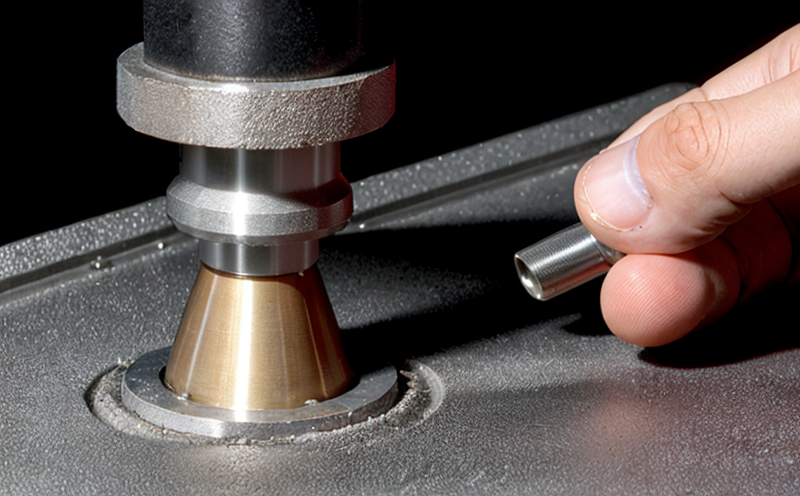Residual stress consideration
The Crucial Role of Residual Stress Consideration in Ensuring Material Integrity Why Businesses Cant Afford to Overlook It
As industries continue to push the boundaries of innovation and technological advancement, the importance of material integrity has never been more pronounced. In todays fast-paced manufacturing landscape, where products are increasingly complex and subject to extreme conditions, the presence of residual stress can have far-reaching consequences for businesses. At Eurolab, our team of experts understands the significance of residual stress consideration in ensuring the reliability and performance of materials used in various applications.
In this comprehensive article, we will delve into the world of residual stress consideration, exploring its intricacies and why it is an essential service that no business can afford to overlook. By shedding light on the advantages of using our laboratorys expertise in residual stress analysis, we aim to educate readers about the importance of prioritizing material integrity.
What is Residual Stress Consideration?
Residual stress is a type of internal stress that develops within materials during various manufacturing processes or as a result of environmental factors. It arises from microscopic changes in the materials microstructure, such as plastic deformation, thermal expansion, and chemical reactions. If left unchecked, residual stress can lead to cracks, fractures, and other forms of damage, compromising the integrity of products.
Residual stress consideration involves analyzing and understanding the underlying causes of internal stress within materials. By using advanced techniques and equipment, our team at Eurolab assesses the level of residual stress present in a material, providing actionable insights that enable businesses to make informed decisions about their manufacturing processes.
Advantages of Using Residual Stress Consideration
Incorporating residual stress consideration into your business strategy offers numerous benefits. Some of these advantages include
Improved Material Reliability By understanding the internal stresses present in materials, businesses can take proactive measures to prevent damage and ensure consistent product performance.
Enhanced Product Life Cycle Residual stress analysis helps identify areas where materials are most susceptible to degradation, enabling companies to optimize their manufacturing processes and extend product lifespan.
Reduced Maintenance and Repair Costs By detecting internal stresses early on, businesses can avoid costly repairs and maintenance procedures associated with material failure.
Increased Product Quality Eurolabs expert analysis ensures that products meet or exceed industry standards, reducing the risk of recalls and protecting a companys reputation.
Key Benefits of Residual Stress Consideration
Here are some key benefits of incorporating residual stress consideration into your business strategy
Optimized Manufacturing Processes By understanding internal stresses, businesses can refine their manufacturing processes to minimize damage and ensure consistent product quality.
Improved Material Selection Our analysis helps identify the most suitable materials for specific applications, reducing the risk of material failure and associated costs.
Enhanced Product Design Residual stress consideration enables companies to design products with internal stresses in mind, optimizing performance and lifespan.
Reduced Environmental Impact By minimizing material waste and extending product life cycle, businesses can reduce their environmental footprint and contribute to a more sustainable future.
QA Section Common Questions about Residual Stress Consideration
Here are some frequently asked questions about residual stress consideration
Q What causes residual stress in materials?
A Residual stress arises from various manufacturing processes or environmental factors, such as plastic deformation, thermal expansion, and chemical reactions.
Q Why is residual stress analysis important for businesses?
A Residual stress analysis helps identify areas where materials are most susceptible to degradation, enabling companies to optimize their manufacturing processes and ensure consistent product performance.
Q How can I determine if my products are affected by residual stress?
A Our team at Eurolab uses advanced techniques and equipment to assess the level of residual stress present in materials. Contact us to discuss your specific needs and requirements.
Q What types of industries benefit from residual stress consideration?
A All industries that rely on complex materials, such as aerospace, automotive, energy, and construction, can benefit from our expert analysis.
Conclusion
In conclusion, residual stress consideration is an essential service for businesses looking to ensure the reliability and performance of their products. By understanding internal stresses present in materials, companies can optimize manufacturing processes, reduce maintenance costs, and improve product quality. At Eurolab, our team of experts is dedicated to providing actionable insights that empower businesses to make informed decisions about their material selection and processing.
Dont let residual stress compromise your businesss success. Contact us today to learn more about how we can help you prioritize material integrity and achieve long-term results.




